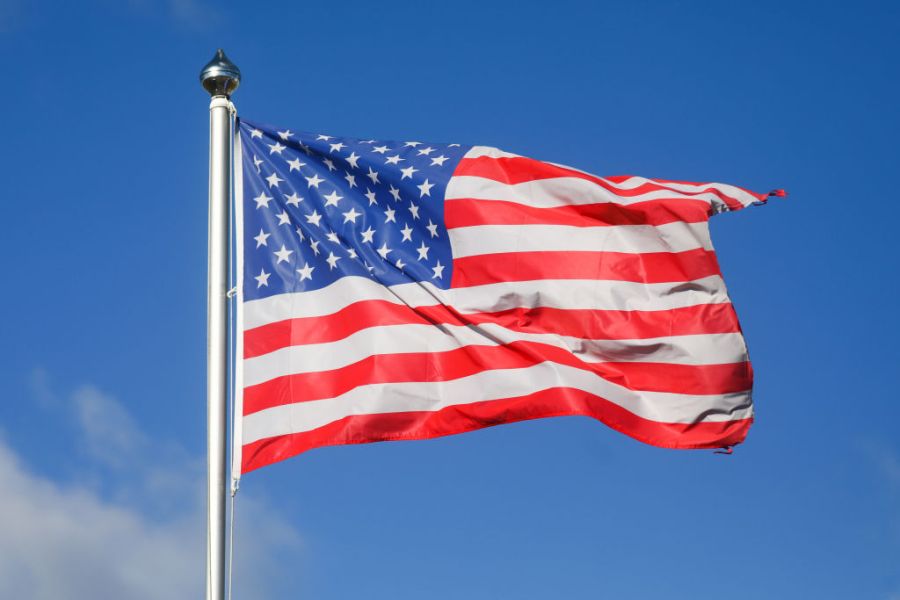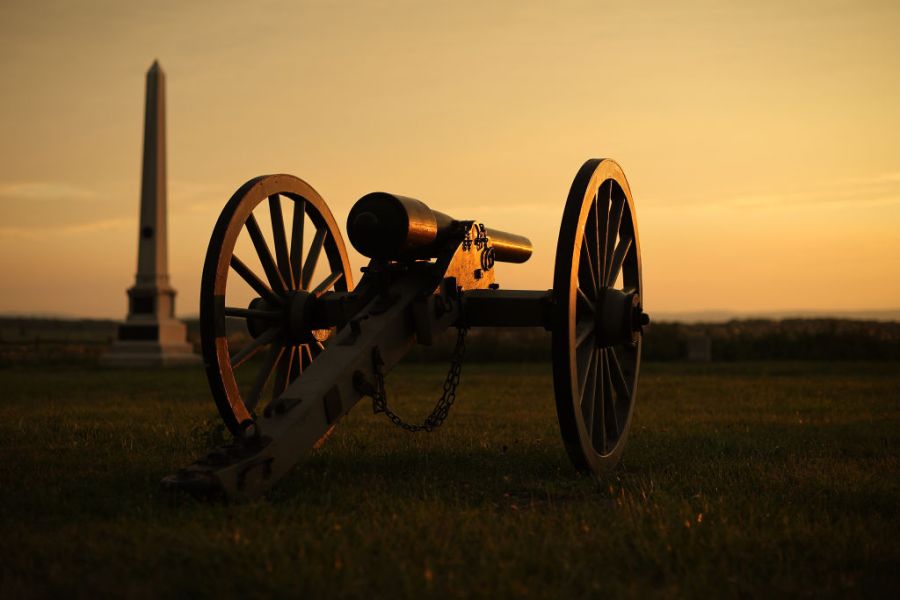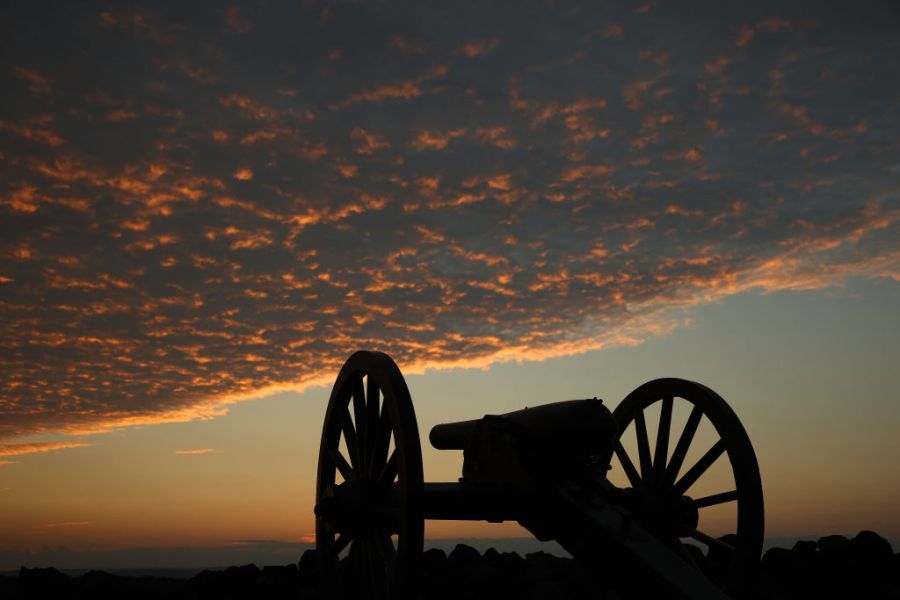Why Was the Battle of Gettysburg a Turning Point in the U.S. Civil War?

In July of 1863, the Union and Confederate armies clashed in the small town of Gettysburg, Pennsylvania. The resulting Battle of Gettysburg would become known as one of the most significant battles of the American Civil War.
But why was the Battle of Gettysburg so important? Let’s look closer at the battle in the context of the war to highlight what the Union’s victory accomplished.
The Roots of the American Civil War

The American Civil War first broke out on April 12th, 1861. Ever since the founding of the U.S., the northern and southern states had heavily disagreed over whether slavery should be legal.
While the country had initially managed to remain united based on a series of compromises, the argument over the expansion of slavery to the Western territories had reached a new high by the 1850s. By then, the economy of the North had become largely industrialized, while many of the Southern states were still dependent on agriculture and plantations.
Shortly after Abraham Lincoln, a candidate from the antislavery Republican party was elected in 1860, seven Southern states announced their succession from the Union to form the Confederate States of America.
Weeks after a group of rebels fired on South Carolina’s Fort Sumter on April 12th, 1861, four more states announced that they too would join the Confederacy. The battle would be the first of the Civil War, which would last four more grueling years.
The Battle of Gettysburg

By July of 1863, the Civil War was well underway. A Confederate general named Robert E. Lee was feeling ambitious after an unlikely victory at the Battle of Chancellorsville in Virginia earlier that May.
Though Lee had gone into the battle outnumbered 2:1, his strategic plan of dividing his forces in half had led to a stunning victory for the Confederacy over the Union forces of Joseph Hooker. Due to Hooker’s reluctance to face off against Lee again, he was eventually replaced by Maj. Gen. George Gordon Meade.
Meade’s orders were to ensure that the Union army kept Lee’s forces from reaching Washington D.C., which would have been an unspeakable blow to the Union. Meade made good on his orders but at the same time positioned himself to intercept Lee in case he attempted to advance his armies any further north.
As it turned out, that’s exactly what Lee had planned to do. Riding high on his recent success, Lee hoped that if his armies could begin taking key areas of the north, the Union would abandon its cause.
The Accidental Battleground

Lee soon learned that Meade had taken control of the Union army and that he and his forces were much closer than he’d realized. Rather than continuing to push forward into Pennsylvania, Lee decided to order his troops back to a small town called Cashtown, about eight miles outside of Gettysburg.
When some of his troops headed to Gettysburg for supplies on July 1st, they accidentally encountered two full brigades of Union cavalry. In the initial skirmish that resulted, the Confederate forces initially seemed to have triumphed yet again, as they drove the Union soldiers out of town.
Fortunately for the Union, however, they maintained an area of high ground called Cemetary Hill, just south of the town. Lee was keen to take advantage of the situation and ordered one of his generals, Richard Ewell, to attack Cemetary Hill.
Ewell, however, was hesitant to attack because he feared his forces were outnumbered. In the meantime, Union reinforcements arrived and strengthened the army’s defense from Cemetary Ridge to Little Round Top hill.
The Civil War’s Bloodiest Battle

On July 2nd, Lee’s forces finally coordinated an attack on the Union defenders in a battle that resulted in both sides suffering heavy losses. Over the course of the first two days of fighting alone, the casualties numbered nearly 35,000.
Nonetheless, on July 3rd, Lee was still convinced that his men were on the cusp of victory and ordered an open advance on the Union army, despite advice to the contrary.
With over a third of his entire army dead, Lee was finally forced to admit defeat. Though his forces would go on to fight in other battles, he never again attempted to invade the North.
Importance of the Battle in Context of the War

The Battle of Gettysburg is often considered the turning point of the Civil War. Had Lee’s northern invasion and capture of Washington D.C. been successful, the Union would have suffered immensely.
By successfully driving Lee’s forces back across the Potomac, Meade and his armies were able to circumvent Union surrender.
It’s estimated that the Battle of Gettysburg left anywhere between 46,000 and 51,000 casualties in its wake. The Union casualties were ultimately laid to rest at Gettysburg National Cemetary on November 19th, 1863, President Lincoln himself attended the cemetery’s dedication.
It was there that he delivered the Gettysburg Address, which is now considered one of the most famous speeches in American history. Ironically, Lincoln was preceded by a two-hour speech from Edward Everett, which included battle descriptions and literary references worthy of a Greek epic.
While Lincoln’s speech, by comparison, was less than 300 words in length, it went on to become regarded as an American masterpiece. The Battle of Gettysburg was an important milestone that preserved the United States and marked the end of slavery.





